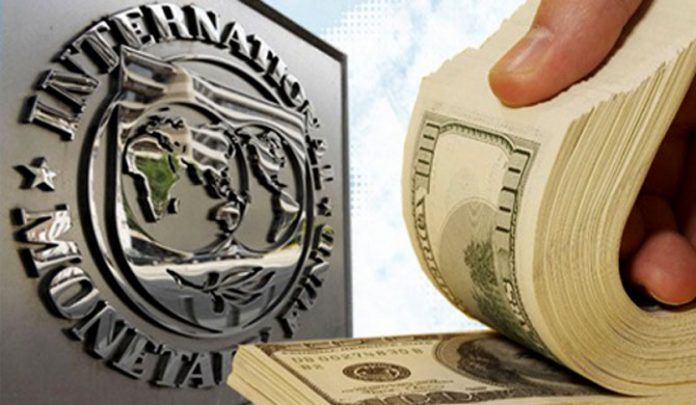- Government presents working plan for new taxes worth Rs 750 billion
ISLAMABAD: As Pakistan and International Monetary Fund’s (IMF) have finalized talks for the next bailout package, Islamabad has prepared the formal application for the loan program which would be shared with the visiting IMF mission today (Friday). State Bank of Pakistan Governor Raza Baqir will share the draft of the application with IMF representatives.
According to sources with the conclusion of talks by the visiting mission a staff-level agreement is expected to be announced on Friday for a bailout program of $7-8 billion. As the country badly needed the loan program, it has accepted almost all the major conditions of IMF which would ultimately lead to the unfolding of an inflationary budget loaded with taxes next month.
On Wednesday, both sides agreed that the country would withdraw tax exemptions amounting to Rs700 billion within two years. The two sides also agreed that Pakistan would increase costs of electricity and gas for the consumers in the next budget. However, reforms in the tax and energy sectors have been outlined in the list of top priorities.
According to sources, the government will have to reduce subsidies and take Rs340 billion from consumers in the energy sector only. Moreover, the SBP would be able to regulate exchange rates independently, and the rate of US dollar would be set without any pressure from the government.
This implies that the government is expected to allow a significant rupee depreciation and key interest rate hike in 2019.
Besides, following the agreements with IMF, the government has also agreed to privatize all loss making public entities which included Pakistan Steel Mills. Earlier the government has also presented a working plan to IMF regarding introducing new taxes worth Rs 750 billion in the next budget. As per the working plan, the GST on sugar and FDI on gas will be increased in the budget 2019-20.
The government as per the plan will also levy ST retail price of electronic items, foam industry etc. the FDI will also be increased on cigarette and juices. The main GST rate may also be increased from 17 to 18 percent to meet the target of the tax collection. Another important decision about increasing taxes would be enhancement of increase in custom duty on import of LNG which will cause increase in electricity tariff and cost of industrial output.
The government, according to sources, has also decided to introduce FDI on natural gas which will ultimately lead to an increase in FBR’s revenue by Rs 60 billion. FBR will also receive additional Rs 37 billion through the FDI on cigarette and juices.
As per the working paper, IMF mission has also been informed that multiple steps have also been planned to increase revenue from the income tax side. The holding period for capital gain tax on unregistered land and securities will also increased which would enhance Rs 20 billion in income tax.
In the next budget taxes would also be introduced on income of banks and insurance companies as per the international standards. The government may also introduce 5 percent custom duty on import of LNG while rolling back the exemption of 3 percent duty on the import of the fuel, which has already replaced the furnace oil. This decision will also add Rs 24 billion additional revenue as the country was facing loss of revenue from import of furnace oil since LNG is being used for power generation and industrial unites as alternate fuel.




